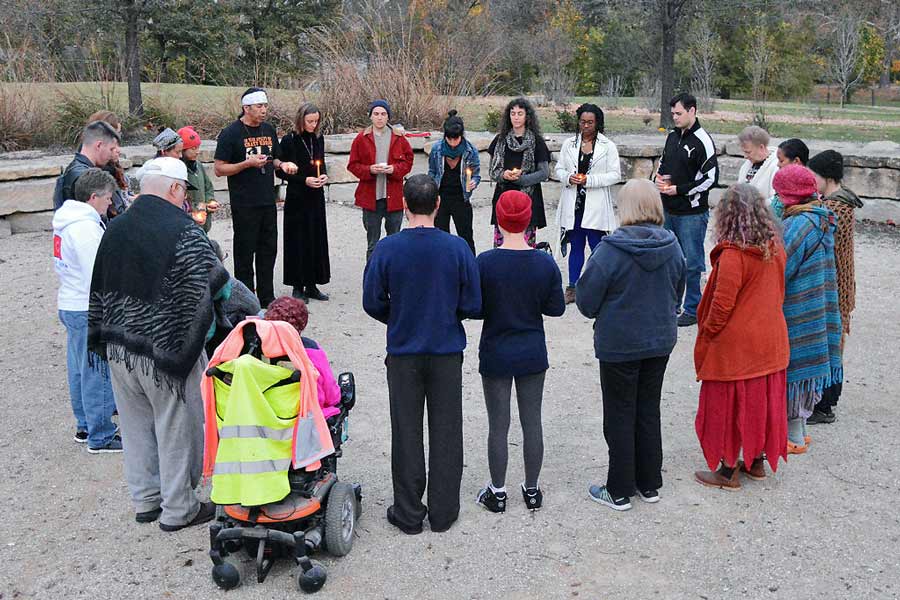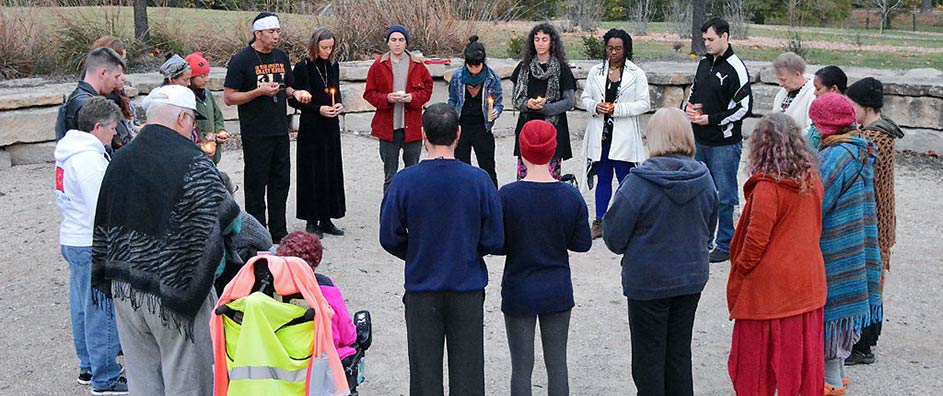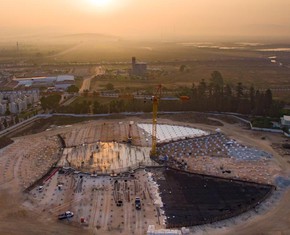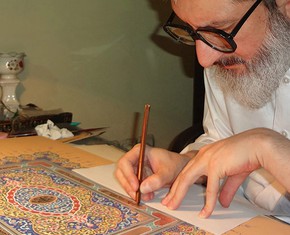The views expressed in our content reflect individual perspectives and do not represent the authoritative views of the Baha'i Faith.
Water is Life!
People across the U.S. will forever associate this message with the peaceful resistance movement of indigenous people that succeeded on December 4, 2016. Many will also see water as a symbol for unity and transcendence.
These qualities prevailed for the Oglala Sioux at Standing Rock, South Dakota. The people had gathered for more than three months to protect their cultural sites and tribal riverbanks from an oil pipeline that would threaten to disrupt the only water source for several million people. They slept in tents in freezing temperatures near a cultural burial ground laden with heavy equipment. Finally, they won an attempt for an environmental impact study to consider a rerouting of the pipeline.
This turn of events underscores questions about transcendence as we strive for “the gift of understanding,” one of the Baha’i prerequisites to peace.
Despite a few conflicting stories of clashes among individuals on both sides, these indigenous people etched a new chapter of history in the cold Midwestern soil as they camped, prayed, and quietly gathered with thousands of supporters representing their human family from around the world. Assailed by rubber bullets, bitten by police dogs, sprayed by water cannons whose ice baths induced hypothermia, the campers remained and multiplied from early fall through early winter. When they crossed the Cannonball River on Thanksgiving Day to pray on their sacred burial grounds, the contracted security guards there launched water cannons as they continued dancing, undaunted.

a group in prayer at Standing Rock
Those who visited camps such as Oceti Sakowin (just south of Bismarck, North Dakota) testified that through it all, the tools of the nonviolent resisters in camp consisted of prayer, gentle laughter, and camaraderie. Despite harsh conditions and physical assaults reminiscent of the abuses of the past, the group as a whole had no intention of leaving and no intention of returning violence with the same.

Rhea Suh
“Today, the voices of indigenous people were heard,” declared Rhea Suh, president of the Natural Resources Council, in a statement on December 4th when, at last, the U.S. Army Corps of Engineers halted the project to call for a deeper study and a plan to reroute the oil company’s pipeline. This action came a day before they had intended to forcibly remove the camps and the thousands gathered there.
Celebrated as a victory—at least temporarily—by environmental groups and by the thousands of compassionate donors of food and supplies, this moment signified justice purchased with unity, transcendence, peaceful resistance and prayer at Standing Rock. Its setbacks and temporary victory could easily fill a few poignant pages in the annals of history.
How does each region fill those pages of its own histories? So many have faced a “Standing Rock moment,” a time to create justice for cultural, ethnic or religious minorities suffering challenges to basic rights. In the Western Sahara, nonviolent Sahrawi refugee camp dwellers have used cultural celebrations to make statements of nonviolent resistance against outside occupation. In Latin America, Tanzania and Papua New Guinea, indigenous women stand in front of mining operations to protest gang rape and gender violence. In Canada, when corporate interests resulted in broken treaties and left 80% unemployed, deprived of land and water resources, First Nations people used traditional dance and teach-ins to initiate change.
Many nonviolent resistance movements draw on the “theory of consent” long used by Thoreau, Tolstoy and others since its inception in the mid-1500s. The theory posits that the authority of a ruler relies on voluntary support. By withdrawing cooperation through boycotts or other noncompliant stances, a group gradually compels change without introducing violent conflict and ultimate war.
The Baha’i writings declare:
O Son of Spirit! The best beloved of all things in My sight is Justice; turn not away therefrom if thou desirest Me, and neglect it not that I may confide in thee. By its aid thou shalt see with thine own eyes and not through the eyes of others, and shalt know of thine own knowledge and not through the knowledge of thy neighbor. Ponder this in thy heart; how it behooveth thee to be. Verily justice is My gift to thee and the sign of My loving-kindness. Set it then before thine eyes. – Baha’u’llah, The Hidden Words, pp. 3-4.
As a prerequisite to peace, surely justice includes nonviolent protection of the rights of all. Do we need to do more?
The Universal House of Justice created a document called The Promise of World Peace, which defines the intersection of logistical and spiritual approaches as prerequisites to peace and greater understanding. The statement calls for a demilitarized civilization and a oneness of mankind that:
…does not ignore, nor does it attempt to suppress, the diversity of ethnical origins, of climate, of history, of language and tradition, of thought and habit [but]calls for a wider loyalty, for a larger aspiration than any that has animated the human race. – The Promise of World Peace, October 1995, p. 4.
A system that honors the needs of the whole human family, while recognizing the specific needs of each indigenous group, has implications for institutions, commerce and individuals. The United Nations can recommend boycotts, sanctions or divestment to encourage justice in a region, but the Promise of World Peace also particularly emphasizes the importance of diplomacy through meaningful, consensual dialogue as a key to bringing about unity in diversity. The statement quoted Shoghi Effendi, the Guardian of the Baha’i Faith:
“Consultation… is a shining light which, in a dark world, leads the way… The maturity of the gift of understanding is made manifest through consultation.” The very attempt to achieve peace through the consultative action he proposed can release such a salutary spirit among the peoples of the earth that no power could resist the final, triumphal outcome. – Ibid.
To help individuals achieve that peaceful spirit, current conflict resolution processes usually emphasize careful listening, paraphrasing, empathy building, and reframing blame as contributions from two or more participants to an unfolding story. Interdisciplinary case studies show that as we de-emphasize judgement, we create room for negotiation. In essence, the concept of “consultation,” as opposed to a set of superficial political or legal solutions, helps us respond to holistic challenges by striving to acquire the necessary spiritual maturity at the heart of this “gift of understanding.” At the heart of it all, this gift calls upon us to develop transcendence as we build unity.
In this regard, the advantages come not with advanced technology nor education but with a wisdom we can only earn through practice. We thank those indigenous friends who have put in the time to earn it.
You May Also Like
Comments

















John T I would like to invite you to watch a documentary named "Before The Flood", I have watched it and it is by National Geographic, and very thought provoking. God Bless
Which pipeline is being objected to? Check out all those now in operation:
www.propublica.org/images/ngen/gypsy_big_image/pipeline_line_map-630x420.gif
We need energy to function, and pipelines are the safest way to transport oil and gas.
Courage will overcome avarice!